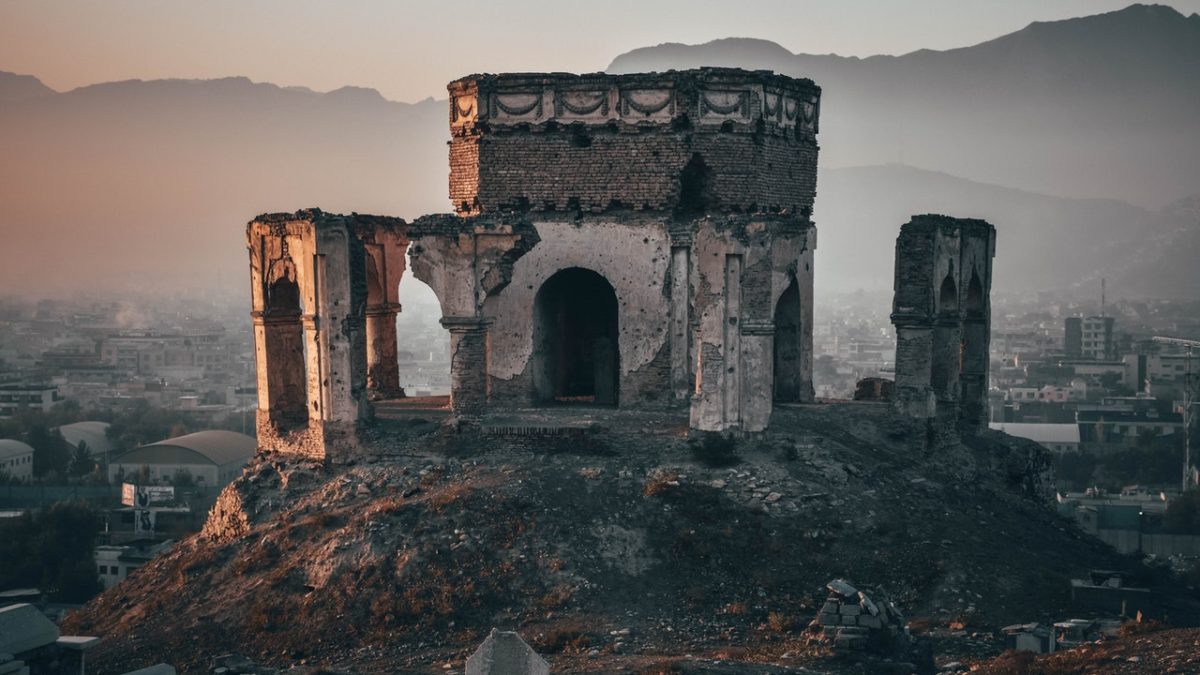Afghanistan Emerges As Global Leader In Christian Persecution
source: The Federalist

It hasn’t gotten any easier to be a Christian in North Korea or China – it’s just significantly worse under the Taliban.
The worst perpetrator of religious persecution is no longer North Korea or China. The most difficult and dangerous place to be a Christian is now Afghanistan, according to a recent report by Open Doors USA. Afghanistan takes the lead thanks to its recent seizure by the Islamic militant group, the Taliban, which violently enforces its peculiar brand of Muslim extremism.
The total number of Christians in Afghanistan is estimated to be between 10,000 and 12,000, and almost all are converts from Islam. The Taliban forbid the conversion of Muslims to Christianity. Those who do risk being tried and convicted of apostasy, the punishment for which is death according to their interpretation of sharia law. Given widespread reports that the Taliban are already responsible for a hundred extrajudicial killings since their capture of the country last summer, it’s also very possible that Afghan Christians will be murdered prior to trial.
Almost 6,000 Christians were killed for their faith last year, according to the report, an increase of almost 25 percent from 2020. The world is becoming a less safe place for Christians. Where these deaths are happening points to another theme: the role of Islam.
Of all Christians killed, 4,650, or almost 80 percent, were in Nigeria alone (about 53 percent of Nigeria is Muslim). Another 11 percent (620 Christians) were killed Pakistan, which is about 95 percent Muslim. Yet there are few Muslim countries — or countries with large Muslim populations — where Christians can avoid intimidation, harassment, or violence. Seven out of the top 10 countries on the 2022 World Watch List experience some level of Islamic radicalism.
Qatar forced many church closures in the name of Covid-19, but those churches have been forced to remain shut even after other faith communities were allowed to reopen. Al-Shabaab, a powerful Islamic extremist group in Somalia, has executed people who commit what they consider apostasy. Jihadists have killed dozens of Christians in Burkina Faso, and forced hundreds of others to flee their homes. Christians suffer similarly from west Africa to Indonesia.
But it’s not just Muslim nations where Christians endure such things. For two decades prior to this year, North Korea was number one on Open Doors’ list — where Bibles are banned, North Korean citizens cannot attend church, and between 50,000–70,000 Christians are estimated to be held in the country’s notorious prison camps. Things haven’t gotten better in North Korea, it’s just that conditions have significantly worsened elsewhere in the world.
In communist China, Christian worship is tightly restricted and monitored, while the government imprisons and tortures Christians and regularly shuts down their churches. Hindu-majority India is in the top 10 of worst places for Christians, while Buddhist-majority Myanmar ranks twelfth. Cuba pushes many restrictive measures on churches, particularly Protestant ones.
Across the world in 2021, more than 360 million Christians suffered high levels of persecution or discrimination for their faith. Last year 5,110 churches or Christian buildings were attacked, 4,765 Christians were detained for their faith, and 3,829 Christians were abducted for faith-related reasons.
Perhaps the most famous example of the latter was the abduction of a group of American missionaries in Haiti by a strange, violent gang that practices voodoo. The missionary group, which included a baby, only recently escaped in December.
Open Doors USA President and CEO David Curry said there are “seismic changes” happening in the persecution landscape around the globe. The organization’s World Watch List is based on a data-driven comparison of several factors, including the proportion of types of Christianity persecuted; proportion of inhabited territory affected; intensity of persecution; and frequency of persecution. Each country is then given a score based on this evaluation.
As I served in Afghanistan in the U.S. military and spent years advocating on behalf of Christians who suffer persecution at the hands of Muslim extremists, I recently published a book on this very topic, extensively detailing the suffering of Christians in Muslim countries. The book is especially focused on those who have fled Pakistan and sought refugee status while living as asylum seekers in Thailand, where I met hundreds of them.
I met two young Pakistani women who have extensive burn marks on their torsos from when they were captured and set on fire by Muslim extremists. Others have had female family members abducted and forcibly married to Muslim men and converted to Islam. That happens about 1,000 times every year in Pakistan. All have courageously retained their faith in Christ under terrible circumstances few of us in the West, God willing, will experience.
There are many ways Americans can support the global persecuted church. The first, which cannot be overestimated, is to pray. If we really believe in a merciful, personal God, then we must believe our prayers on behalf of the persecuted will not go unanswered. Prayer changes lives.
Of course, we can also donate to worthy causes. Certainly Open Doors is one, but there are many others such Jubilee Campaign, the Knights of Columbus, the Barnabas Fund, and the Voice of the Martyrs, among others.
Finally, we can advocate for them. Call your member of Congress, write letters to the media demanding more coverage of this crisis, or coordinate an event at your local church to bring attention to it.
Jesus himself warned his followers they would face persecution. “If the world hates you, realize that it hated me first” (John 15:18). But that doesn’t mean we should put up with it, or sit idly by while our brothers and sisters in Christ suffer. For our Lord exhorts us: “Truly, I say to you, as you did it to one of the least of these my brethren, you did it to me” (Matthew 25:40).

